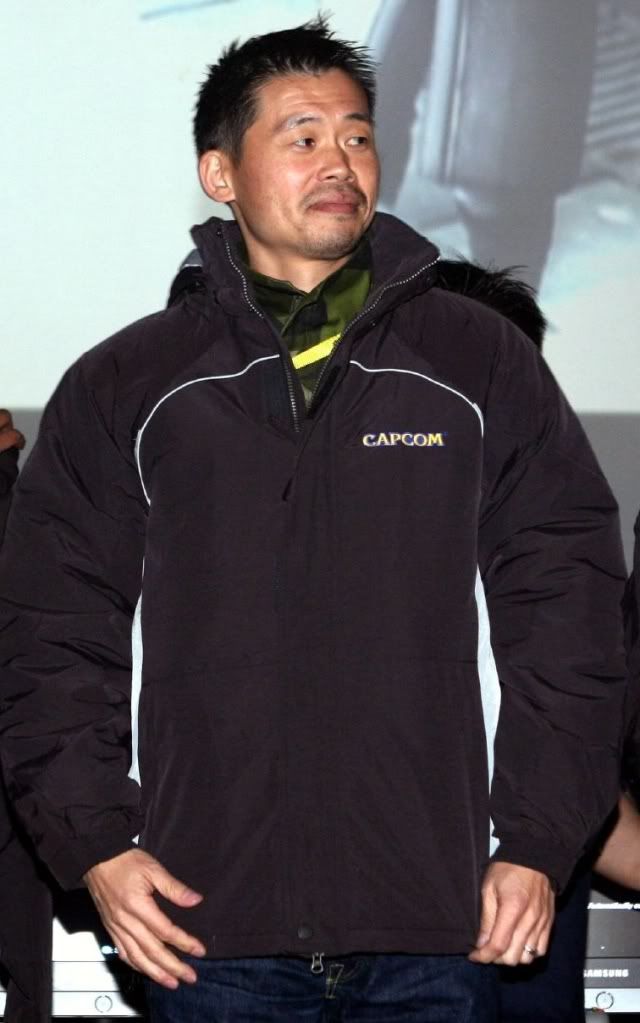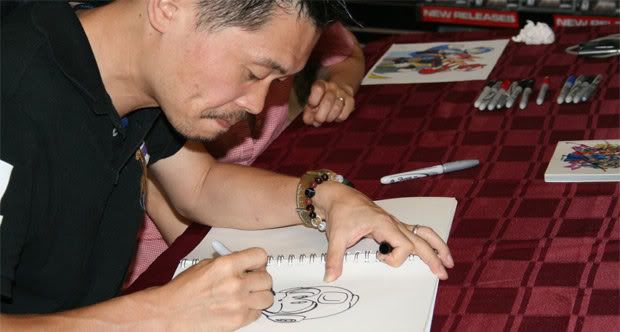This post has not been edited by the GamesBeat staff. Opinions by GamesBeat community writers do not necessarily reflect those of the staff.

It started in 2009. Mega Man creator and Japanese developer extraordinaire, Keiji Inafune, had the following to say after seeing the games on display at that year’s Tokyo Game Show:
Japan is over. We're done. Our game industry is finished.
Then, a year later at the 2010 TGS, Inafune expanded on what he meant:
I look around Tokyo Games Show, and everyone’s making awful games; Japan is at least five years behind.
As the then-Capcom head of global research and development explained, the Japanese game scene was no longer for him. “I want to study how Westerners live and make games that appeal to them,” said Inafune.
But by the Game Developers Conference of 2012, the gloves were off. Japanese developers needed to move past their memories, stop living off the fruits of past labors, and start investing in new ideas.
Perhaps the most peculiar thing about Inafune’s presentation from a month ago was his emphasis on winning. It wasn’t enough just to make new kinds of games and make them well. Japan had to beat the competition and become the ruler of the gaming world once again.
Which brings us to today and Inafune’s most recent dismissal of the Japanese development scene.
Speaking with Chris Kohler in a Q and A with Wired while at this past GDC, the video game designer spelled out his disappointment with his homeland:
American games are the best-selling and considered the most fun. But Japan’s gamers and game creators still won’t accept this. This is why Japan can’t win.
Now, I want to call your attention, dear reader, to two things in the above statement that persist throughout Inafune’s remarks. First is the assertion that American games are not only the best-selling but also the most fun. He supports these claims neither with sales data nor examples, but more on that in a moment. The second thing to take note of is his continued focus on winning.
This could be a translational issue. Maybe Inafune is using "win" in a sense that is less narrow-minded and short-sighted than it sounds. But if so, Kohler never asks him to clarify. And knowing that the interview is aimed at an English-speaking audience, I’ll take the designer’s terminology at face value.
So then, let’s go back and tackle the first part of that statement. Inafune thinks American games are the bees knees. And for Americans, they definitely are. Two of last year’s best selling titles in the U.S were The Elder Scrolls V: Skyrim and Call of Duty: Modern Warfare 3. Both developed by Americans, for Americans.
However, neither of those games sold particularly well in Japan. In fact, Yakuza 4 and Dark Souls outsold both of them in that country. At the very least, it’s unclear that Japanese gamers prefer Western games to their own — something Inafune is claiming. Even more so, though, Inafune fails to support his most basic premise: that American games are better than Japanese ones.
Is Skyrim better than Dark Souls? Are the dialogue options in Catherine less captivating or engrossing than the ones in Mass Effect? Did Nintendo stop making good platformers? Did Capcom stop leading the industry in fighting games?

All of which is to say that the case for or against Japanese video games is not so clear cut. Inafune doesn’t even back up his hyperbolic and melodramatic positions with facts or examples (and ones supporting his argument do exist!), but rather trades in vague platitudes about winning and getting "back to basics" and trying to "win" again.
By this point, his blanket assertions should be old news. But instead, news outlets continue not only to devote space to them but to also invest time and energy in interviews that don’t even bother to ask a single hard-hitting question, let alone a clarifying one.
The truth of the matter is that many Japanese franchises — being older than the American ones — have had a far greater length of time to run themselves into the ground. Add to that a legitimate problem with Japanese gaming’s production cycle and the inability of many studios in that country to get their games out in a timely and cost-effective manner, and we have plenty to be critical of.
And yet nowhere that I have seen — in the American press at least — has Inafune gone and reprimanded Japanese developers for the above practices. Instead, he focuses on how Japanese companies rely too much on brand (something North American ones have already begun to do and will only continue to do since their brands have begun to mature).
Well Mr. Inafune, if you’d really like to do Japanese developers a favor, start talking specifics. What Western games would you like to see them emulate and why? What if Japanese audiences don’t want American-centric vide ogames just as Americans appear to no longer want Japanese-centric ones? What is it about the gameplay mechanics and narrative execution of Western games that you think is superior to their Eastern counterparts?
These are the kinds of questions Inafune needs to start answering if he wants to add something meaningful to the conversation. And they are the ones the gaming press should start asking rather than just simply reshuffling the same unsupported demagoguery as before.
